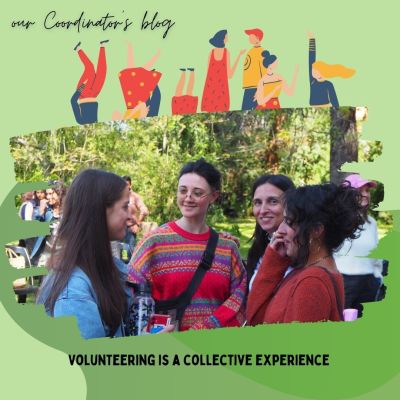So, what does it mean to be Assertive?
According to the Cambridge Dictionary, someone assertive behaves confidently and is not frightened to say what they want or believe. But assertiveness also involves respecting others' opinions and toughts.
Someone assertive distances himself from a passive position without having aggressive behavior. Assertiveness is to find the balance to stand up for yourself and your belief, without slip past other people's feelings and ideas. Therefore, to become more assertive is important to:
-Be open-minded
-Be an active listener
-Be confident about yourself
-Learn how to express your emotions
-Be able to admit mistakes and to recognize others
-Acknowledge differences and learn to respect them
What better way to do it than leaving your comfort zone?
Volunteering abroad can broaden your perspective, you learn about different cultures, and it leaves you no option but to stand up for yourself.
Here you can chek out some insights from past volunteers:
“The experience has taught me a lot about autonomy and being independent. It has also taught me to not complain about the little things in my life as there is worse elsewhere; for example in France, all children are able to attend kindergarten, in Buenos Aires, this is not the case. I’ve learnt a lot about myself and how to live in a different country with a different culture. The experience has changed me as a person!”
“Since being here it has taught me that I am able to teach my way, I can be the teacher I want to be. I have only been here for 4 weeks, but the way they do things in the project is just so different, but I feel reassured that I am doing things in the right way.”
“ I didn't just improve my Spanish imperatives (sit down, stop running, stop jumping...) during a short space of time I became more confident working with the children and developed a close bond with many of them.”





